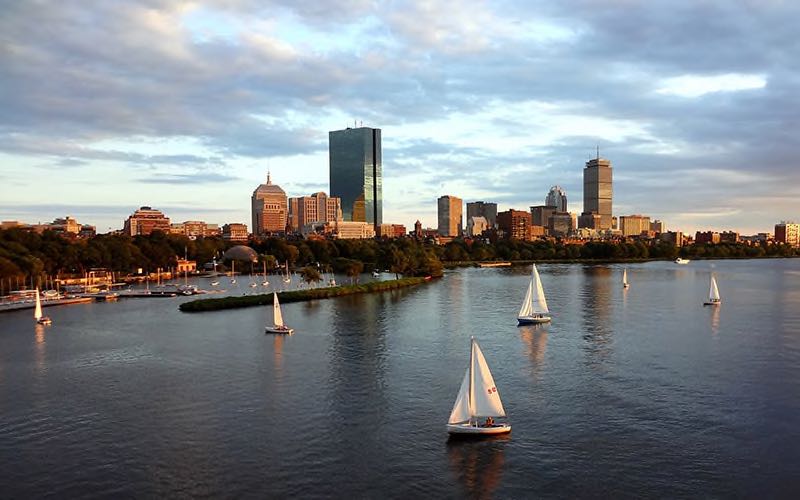
Photo: Leatherndevil via CC3.0
December 27, 2019 (BOSTON, MA) – Charles River Watershed Association (CRWA) and Conservation Law Foundation (CLF) have reached a proposed settlement with the U.S. Environmental Protection Agency (US EPA) regarding the Massachusetts municipal stormwater permit. The two organizations intervened in the permit appeal process to ensure that the permit’s pollution reduction requirements were in line with current science. The groups fought to require nature-based solutions for stormwater management in new and redevelopment projects and push for stronger protections to defend waterways from polluted runoff that causes toxic algae blooms. The proposed settlement was published in the Federal Register today and now undergoes a 30 day public comment period.
“Stormwater pollution continues to wreak havoc on Massachusetts waters,” said Heather Govern, Director of CLF’s Clean Air and Water program. “Cities and towns are responsible for reducing this pollution and many have shirked these duties for years. This new permit forces them to prioritize protecting our waters, but CLF is prepared to take legal action if these flagrant violations continue.”
“This new permit means over the next twenty years cities and towns will have to reduce phosphorus discharges into the Charles, in accordance with what our studies have shown are necessary for a truly healthy river,” said Emily Norton, CRWA Executive Director. “We look forward to partnering with our watershed communities in order to help them comply at the lowest cost.” She added, “An important co-benefit of this permit is that many of the measures necessary to reduce phosphorus pollution – installing rain gardens and bioswales, switching to permeable pavers – will also protect communities from some of the extreme weather impacts of climate change, such as flooding and heat island effect.”
The permit governs stormwater runoff from cities and towns along the Charles and requires a greater reduction in the polluted runoff that ends up in the Charles. During rain or snowmelt, water from urban streets, parking lots, and construction sites carry oil, grease, sediment, phosphorus and other pollutants into the river. This can cause toxic algae outbreaks like the ones seen this summer, which choke plants and wildlife and make the river unsafe for humans and pets.
Under the Clean Water Act, municipalities and other public entities that discharge stormwater into rivers and streams must comply with the “MS4” (short for “municipal separate storm sewer system”) general permit which is issued by US EPA. Stormwater is the largest source of pollution in the Charles River, and the MS4 permit requires municipalities to reduce stormwater pollution by removing illicit sewer connections to storm drains and taking other steps to reduce the amount of nitrogen, phosphorous, bacteria, and other toxins into drains.
US EPA first issued an updated permit in 2016 that was more stringent than the previous permit yet delayed the permit’s effective date. CRWA and CLF filed suit against US EPA to force the agency to carry out the Clean Water Act. Other parties, including the National Association of Home Builders, also sued US EPA, seeking to weaken the permit.
###
